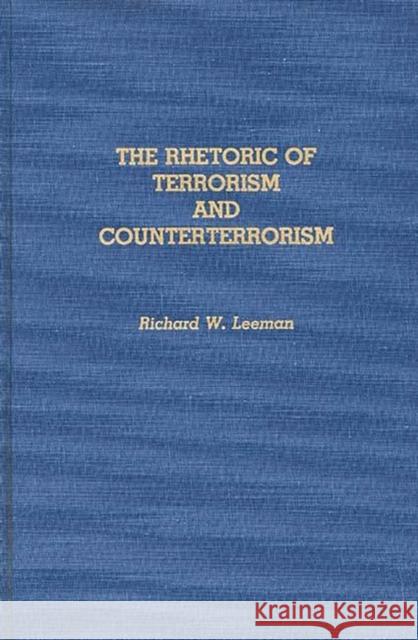The Rhetoric of Terrorism and Counterterrorism » książka
The Rhetoric of Terrorism and Counterterrorism
ISBN-13: 9780313275876 / Angielski / Twarda / 1991 / 232 str.
Richard Leeman analyzes the possible discursive responses to terrorism, prescribing democratic rhetoric as the most strategic counterterrorist response available. He examines counterterrorism as a response to terrorism, considering each side as one-half of a dialogue. Given the inherently anti-democratic nature of terroristic discourse, he hypothesizes that the best discursive strategy is to shift the dialogue to different grounds, i.e., to use democratic rhetoric.
As a test of his hypothesis, the author considers the responses of the Reagan and Nixon administrations to acts of terrorism. The Reagan administration's response to international terrorism provides an example of wholly non-democratic counterterrorist discourse. Leeman's case study suggests that this was a failed rhetoric. The Nixon administration, on the other hand, used a mixed democratic and non-democratic terrorist rhetoric in response to terrorism. Leeman argues that the non-democratic elements of the discourse subverted the democratic elements, thus leading to an ineffective use of discourse for the purpose of counterterrorism. Leeman thus concludes that a wholly democratic rhetoric is the best discourse available for the counterterrorist speaker or writer. This is the first book to specifically address the rhetoric of terrorism and counterterrorism, and prescriptively suggests how America can address the problem of terrorism through discourse. This unique book will be provocative reading to those in the fields of speech communication, political science, history, sociology, and the mass media.











